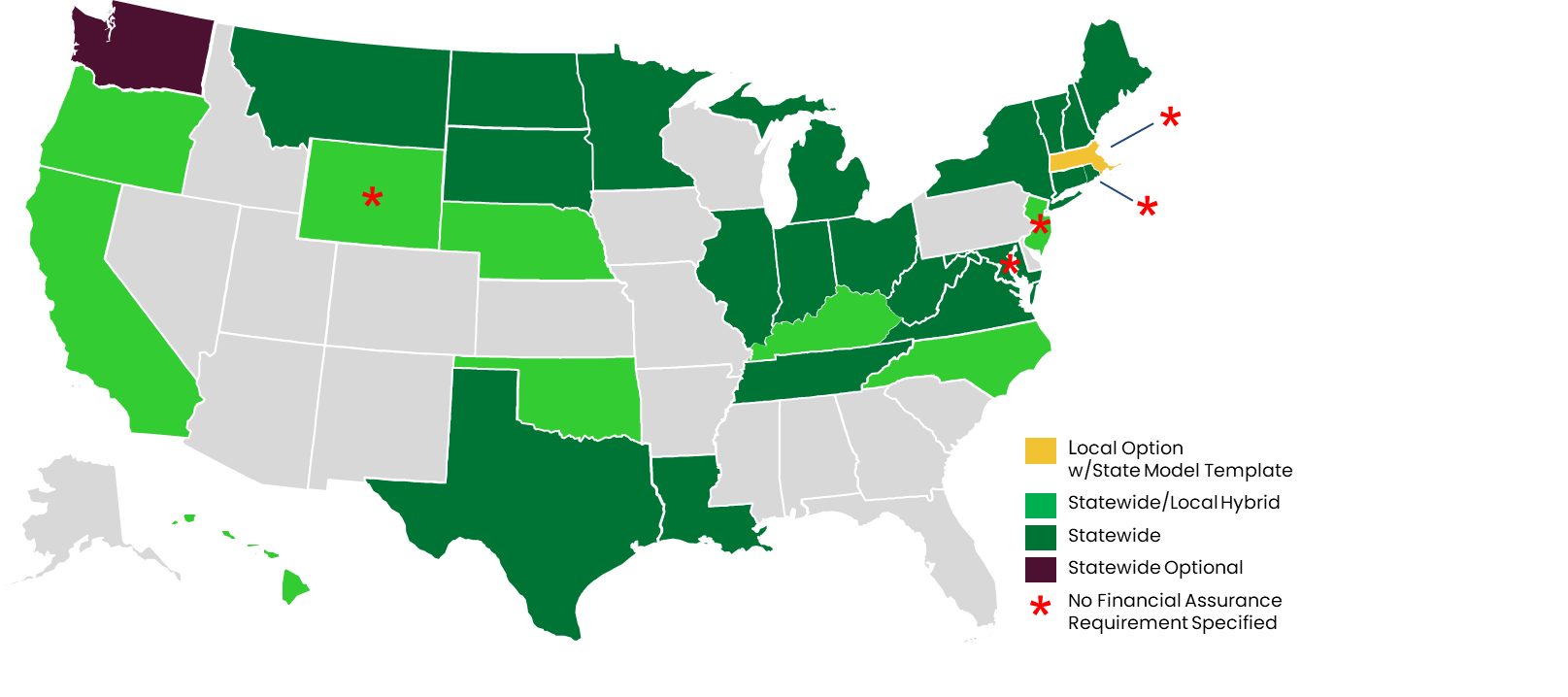NCCETC Releases New 50 States of Solar Decommissioning 2023 Snapshot Report
Raleigh, NC – (January 18, 2024) The NC Clean Energy Technology Center (NCCETC) launched a new policy tracking snapshot report today entitled The 50 States of Solar Decommissioning: 2023 Snapshot. The report provides a comprehensive review of the state solar decommissioning policy landscape, as of the conclusion of 2023, including state legislative updates pertaining to decommissioning planning and financial assurances.
“As the pace and planning of solar installations increases from state to state, more projects are expected to reach the end of their operational lifespan in the coming decade,” said Justin Lindemann, Policy Analyst at NCCETC and co-author of the report. “The growing amount of solar projects in interconnection queues underscores the importance of having clear decommissioning rules in place for the eventual removal of these projects.”
Statewide Solar Decommissioning Policies (as of December 2023)

The 2023 snapshot finds that 20 states have a statewide policy, 9 states have a statewide/local hybrid policy, 1 state has a statewide optional policy, and 1 state provides an official model template that local governments may adopt (see figure above). More than a dozen states had legislative actions related to solar decommissioning in 2023, with the Southeast showing significant activity in this area.
The report finds several decommissioning policy trends, including that most statewide policies require some form of financial assurance; the typical project sizes covered are large-scale projects; a number of states do not allow for salvageable assets to be included or subtracted from cost estimates; and some statewide policies explicitly cover agricultural or forest lands.
The report notes significant policy developments in 2023:
- The North Carolina General Assembly enacted statewide decommissioning and financial assurance requirements for new and existing utility-scale projects with a capacity of at least 2 MW.
- Kentucky lawmakers overrode the Governor’s veto of a bill requiring project owners to submit decommissioning plans and bonds as part of their facility construction application.
- Arkansas legislators enacted a statewide decommissioning policy, requiring eligible net metering facilities to provide financial assurance to ensure proper decommissioning. However, the provision was then removed by another bill enacted later in the year.
- Illinois lawmakers enacted a bill that disallows county governments from enforcing decommissioning standards that are stricter than state requirements for certain commercial solar development projects.
- The Michigan legislature enacted bills requiring certain solar projects on farmlands to submit financial assurance and revert the land back to agricultural use after project removal. For solar projects sized at least 50 MW, owners must submit a decommissioning plan and assurance.
“At present, rules for solar decommissioning and financial assurances focus on protecting undeveloped land for future development,” noted Vincent Potter, Senior Policy Analyst and co-author of the report. “The application of these policies for removing solar facilities on brownfield or reclaimed sites is uncertain and will surely create some interesting developments.”
Media Contact: Shannon Helm, NCCETC, shannon_helm@ncsu.edu